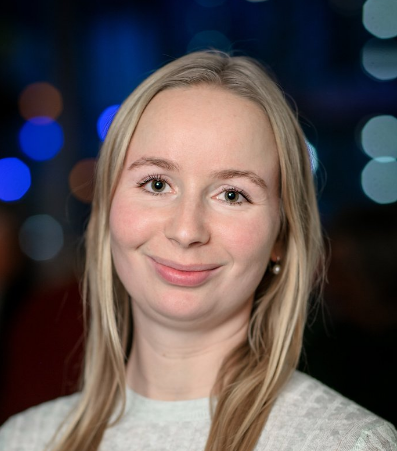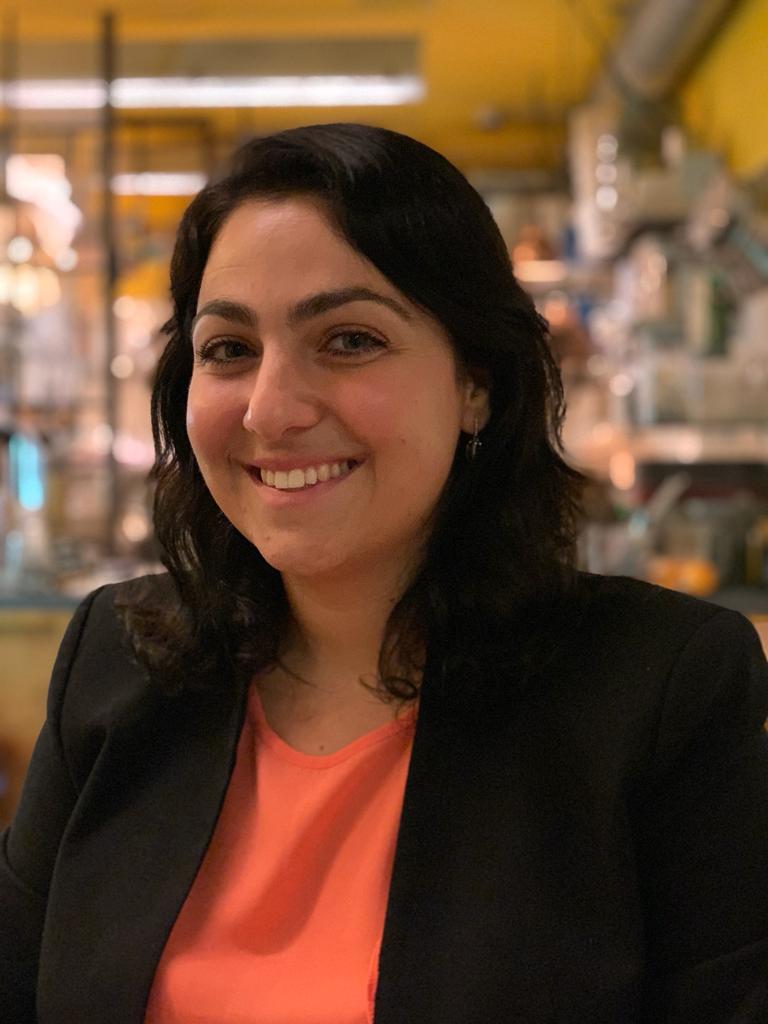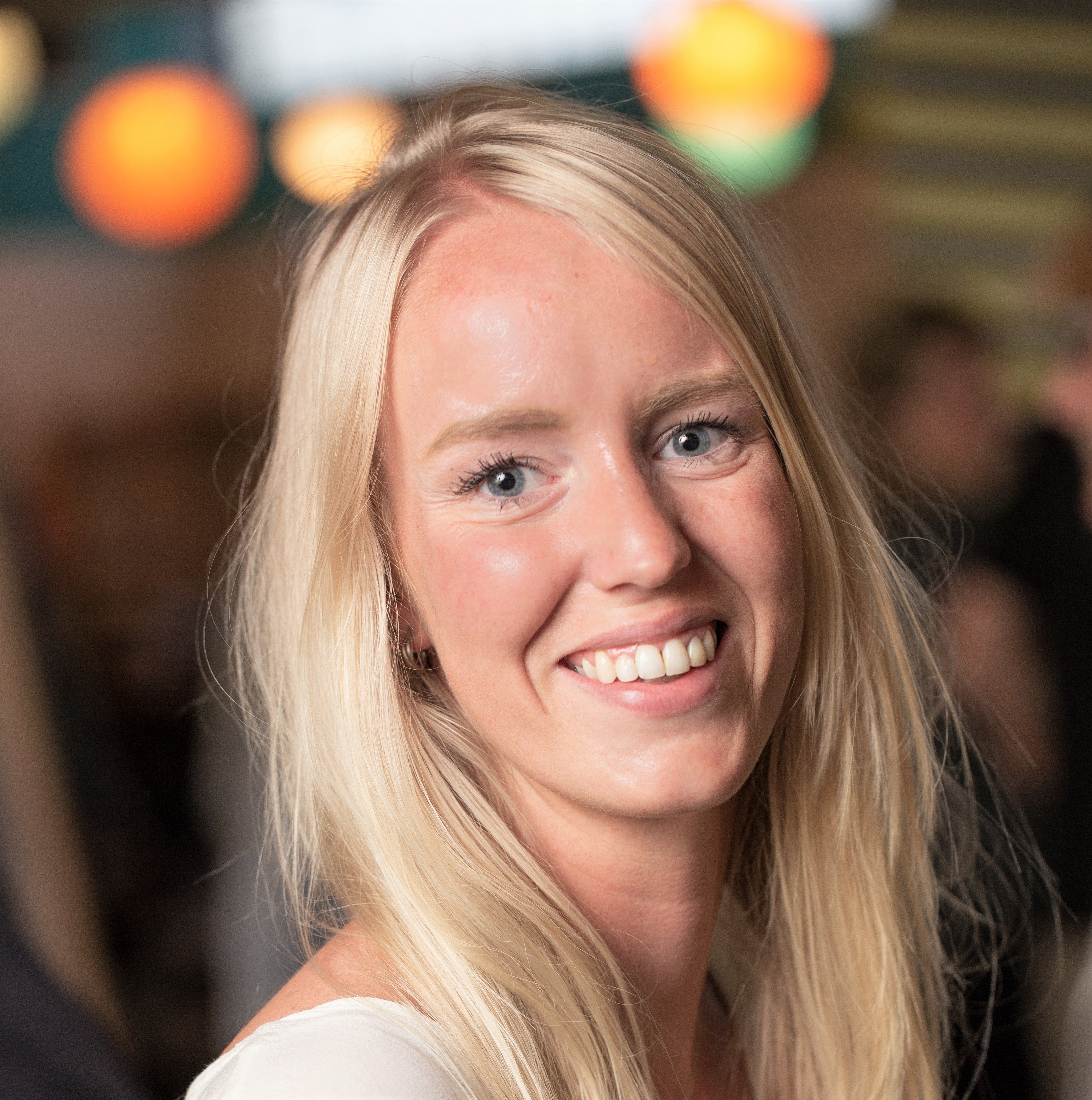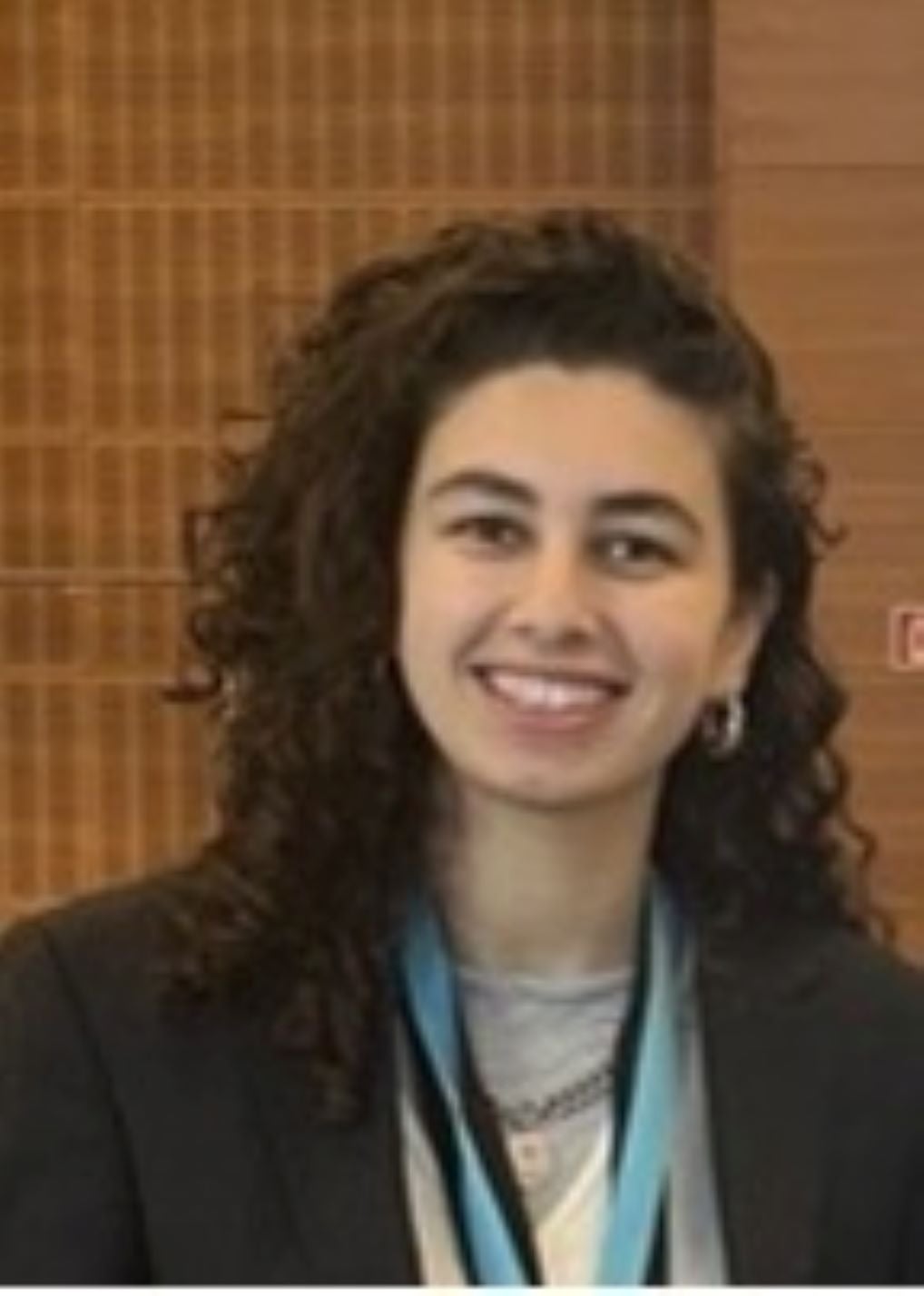Then the Duisenberg Honours Programme in Quantiative Finance is the right programme for you!
Become a quantitative finance specialist
Check if you meet the programme requirements and sign up
-
I have a School of Business and Economics Degree from VU Amsterdam
Duisenberg Honours Programme in Quantitative Finance is a highly selective and challenging programme for those students who have a strong quantitative focus which they want to apply in all areas of quant finance and risk management. You have a bachelor degree in mathematics, statistics, econometrics or engineering, or you have an economics bachelor but you also followed and successfully completed a number of quantitative courses. You can programme in at least one algorithmic language. You are fascinated by the way financial markets operate. If the above applies to you, this programme will be a perfect continuation of your studies and your gateway to the world of finance.
Admission requirements
With a Bachelor's degree in Mathematics or Econometrics and Operations Research from Vrije Universiteit Amsterdam you are admissible to this programme, provided you have a grade-point average of at least 7.0, sufficient interest in and affiliation with finance, and you successfully finished the 3d year course “Investments” or any other investments course on the level of the book Bodie, Kane, Marcus (1996), Investments.
With a Bachelor's degree in (International) Business Administration, Economics and Business Economics, you are admissible to this programme, provided you have a grade-point average of at least 7.0 and have demonstrated your quantitative abilities (for example, by successfully finishing Econometrics minor) and/or you have successfully finished the following courses:
BSc Bedrijfskunde:
- The minor Applied Econometrics: A Big Data Experience for All (30 EC, P1+2+3)
- Investments (E_EBE3_INVES, P5)
OR
- one course Econometrics, choose between:
- Introductory Econometrics for Business and Economics (E_MFAE_IEBE, P1), formerly known as E_EOR3_IEBE
- Econometrics I (E_EOR2_TR1, P1+2)
- Investments (E_EBE3_INVES, P5)
- Statistics (E_EOR1_STAT, P4+5)
- Probability Theory (E_EOR1_PT, P1+2) OR Introduction to Data Science (E_EOR1_IDS, P1+2)
- Programming for Economists (X_400644, P6)
Please note: a limited amount of students will be admitted to this programme. On https://vu.nl/en/education/master you can find the selection criteria and how to apply for admission.
BSc Economics and Business Economics:
- The minor Applied Econometrics: A Big Data Experience for All (30 EC, P1+2+3)
- Investments (E_EBE3_INVES, P5)
OR
- one course Econometrics, choose between:
- Introductory Econometrics for Business and Economics (E_MFAE_IEBE, P1), formerly known as E_EOR3_IEBE
- Econometrics I (E_EOR2_TR1, P1+2)
- Investments (E_EBE3_INVES, P5)
- Statistics (E_EOR1_STAT, P4+5)
- Probability Theory (E_EOR1_PT, P1+2) OR Introduction to Data Science (E_EOR1_IDS, P1+2)
Please note: a limited amount of students will be admitted to this programme. On https://vu.nl/en/education/master you can find the selection criteria and how to apply for admission.
BSc Econometrics and Operations Research / Econometrics and Data Science:
- Investments (E_EBE3_INVES, P5)
Please note: a limited amount of students will be admitted to this programme. On https://vu.nl/en/education/master you can find the selection criteria and how to apply for admission.
BSc International Business Administration:
- The minor Applied Econometrics: A Big Data Experience for All (30 EC, P1+2+3)
- Investments (E_EBE3_INVES, P5)
OR
- one course Econometrics, choose between:
- Introductory Econometrics for Business and Economics (E_MFAE_IEBE, P1), formerly known as E_EOR3_IEBE
- Econometrics I (E_EOR2_TR1, P1+2)
- Investments (E_EBE3_INVES, P5)
- Statistics (E_EOR1_STAT, P4+5)
- Probability Theory (E_EOR1_PT, P1+2) OR Introduction to Data Science (E_EOR1_IDS, P1+2)
- Programming for Economists (X_400644, P6)
Please note: a limited amount of students will be admitted to this programme. On https://vu.nl/en/education/master you can find the selection criteria and how to apply for admission.
Generally, admission requirements can be found in this document.
This MSc is an honours programme, which means we select the students for this programme on the basis of:
- Motivation letter
- Grade average achieved in the Bachelor programme
- CV
- Sample of academic writing
- Affiliation with finance, which can be demonstrated by means of e.g. bachelor thesis on a finance-related topic and/or internship in a financial institution
Services for international (EBE, EDS, EOR, IBA) students / Residence permit:
If you are planning to continue your studies at Vrije Universiteit Amsterdam after your SBE Bachelor, please contact the Central Admission’s Support Team of Vrije Universiteit Amsterdam for further information and specific questions about the offered services for international students like extending your residence permit. You will need to apply for an extension of your residence permit if you continue your studies at Vrije Universiteit Amsterdam.
When you apply for this master's programme, you will need an application form. You can find it here.
-
I have a Dutch university level (WO) bachelor’s degree (VU bachelor’s degree, VU pre-master's or bachelor’s degree at another university)
Duisenberg Honors Program in Quantitative Finance is a highly selective and challenging program for those students who have a strong quantitative focus which they want to apply in all areas of quant finance and risk management. You have a bachelor degree in mathematics, statistics, econometrics or engineering, or you have an economics bachelor but you also followed and successfully completed a number of quantitative courses. You can program in at least one algorithmic language. You are fascinated by the way financial markets operate. If the above applies to you, this program will be a perfect continuation of your studies and your gateway to the world of finance.
Admission requirements
The Duisenberg honours programme Quantitative Finance is open to students with a university Bachelor's degree that provides a thorough knowledge in mathematics, econometrics, statistics and probability theory, as well as knowledge of basic investment theory and programming. Also: students should be familiar with a theorem-proof type teaching style for some of the more mathematical courses.
You are admissible to this programme, provided you have a grade-point average of at least 7.0/10 and have successfully completed courses and studied literature related to the core of this programme, consisting of (or equivalents of):
- Calculus
Edwards, C.H., and D.E. Penney (2002), Calculus with analytic Geometry (with early transcendentals, matrix version). Prentice Hall - Investments
Bodie, Kane, Marcus (1996), Investments. [integral] - Statistics
Rice, J. (1995, 2nd ed.), Mathematical Statistics and data analysis. Duxbury Press - Probability
S.M. Ross, A First Course in Probability, Prentice-Hall, 2002 - Econometrics
Stock & Watson (2010), Introduction to Econometrics - Programming Language
Knowledge of Matlab, C++, R, Python or a similar language
This MSc is an honours programme, which means we select the students for this program on the basis of:
- Motivation letter
- Grade average achieved in the Bachelor program
- CV
- Sample of academic writing
- Affiliation with finance, which can be demonstrated by means of e.g. bachelor thesis on a finance-related topic and/or internship in a financial institution
Approval is in most cases given to students who hold a Bachelor degree in:
- Econometrics
- Economics with strong quantitative elements
- Engineering
- Physics
- Computer Science
- (Applied) Mathematics
The programme also invites applications of students in related sciences with a strong emphasis on quantitative methods and modelling.
With a Bachelor's degree in (International) Business Administration, Economics or Econometrics and Operations Research from Dutch Universities you can review this document.
Please note: this information is only meant as an indication of your admissibility. No rights can be derived from this table. In order to obtain a personalized, official admission decision, students should apply for the master via Studielink (without obligation) to find out if additional courses need to be completed. Every application will be reviewed individually by the Admission Board. The final admission decision may differ from the indication in this table. If your programme is not listed, feel free to apply.
When you apply for this master's programme, you will need an application form. You can find it here.
- Calculus
-
Application procedure with a Dutch degree
Step 1:
Apply for the programme MSc Finance via Studielink before 1 June. You can apply for the specialization in VUnet (see step 2).Please note: in Studielink you can apply for the Master in Finance and in VUnet you can select the specialization Duisenberg honours programme in Quantitative Finance.
Step 2:
After application in Studielink, you will receive a VUnet-ID and password. Please complete your application in VUnet by answering additional questions, affirming your choice for the specialization Duisenberg honours programme in Quantitative Finance and uploading the Master Application File. Download the correct file here. In this file you can see which documents are required to apply for this programme.Please note: we can only process your application when you uploaded a complete Master Application File.
Step 3:
The admission committee will assess if you meet the admission criteria and will inform you about the decision via email.
For the full description of the registration procedure see the VU website. -
I have an international degree
Students must meet the following admission requirements:
1. Academic requirements
Your previous education needs to be deemed equivalent to at least a Dutch academic Bachelor’s degree (wetenschappelijk onderwijs, WO) obtained at a research university (nominal duration 3 years). Please find more information about your admissibility with a non-Dutch degree here.
Professional certificates in finance (CFA, FRM or CF1) are not accepted as a substitute for a qualifying academic degree. In combination with a qualifying academic degree in another field, those certificates may be accepted for meeting some of the programme specific requirements below.
2. Programme specific requirements
The Duisenberg Honours Programme in Quantitative Finance is a highly selective and challenging program for those students who have a strong quantitative focus which they want to apply in all areas of quantitative finance and risk management. You are fascinated by the way financial markets operate.
All students should possess sufficient mathematics, econometrics, statistics and probability theory knowledge, as well as knowledge of basic investment theory and programming. Also: students should be familiar with a theorem-proof type teaching style for some of the more mathematical courses.It is an 84 credit honours programme, which makes it more challenging than the regular programme.
We expect you to have successfully completed courses based on the following literature, or equivalent:
- Calculus - Edwards, C.H., and D.E. Penney, Calculus with analytic Geometry. Prentice Hall, recent edition
- Investments - Bodie, Kane, Marcus, Investments, recent edition
- Statistics - Rice, J., Mathematical Statistics and data analysis. Duxbury Press,, recent edition
- Probability - S.M. Ross, A First Course in Probability, Prentice-Hall, recent edition
- Econometrics - Stock & Watson, Introduction to Econometrics, recent edition
- Programming - Training (or verifiable experience) in a programming language equivalent to 6 ECTS (for example, Python, R, Matlab, C++)
Furthermore:
- This is an honours programme, which means that students are admitted on the basis of their motivation letter, their grade point average for the Bachelor’s degree, their CV and a sample of academic writing
- GPA of at least 7.0/10 (based on our conversion to the Dutch grading system) for the Bachelor’s degree and relevant courses
If you do not fully meet all criteria regarding the completed courses, the Admission Board might offer you the opportunity to follow an online course in finance, statistics or programming to help you fulfill the admission requirements.
How to demonstrate that you meet the above requirements
You are required to indicate in the course description section of the Application Form how you meet the programme specific admission requirements.
Whether you meet the admission requirements, is determined by the Admission Board based on your complete application.
3. English-language proficiency requirements
You will have to demonstrate sufficient English language proficiency. You can find an overview of relevant information to demonstrate your English language proficiency on the language requirement page.
-
Application procedure with an international degree
Application documents
To apply you are required to provide the following documents:
Scan of your passport or national ID card (ID for EEA students only) valid at the start date of the programme
Master Application File please download the correct file from this page. In this file you can see which documents are required to apply for your programme.
Proof of English language proficiency (if already obtained): upload your proof of English language proficiency or English language test results. Please find the English language requirements here.
After having prepared the required documents, please follow the online application procedure.
Application fee & deadlines
All students seeking admission to an international Master’s programme with an international degree are required to pay a non-refundable €100 application fee. Only after you have paid this fee will we be able to start the evaluation of your application file. If you are applying for more than one programme, you will only need to pay the application fee once. Your application fee payment is valid for two years.
Information on how to apply with an international university degree and deadlines can be found here.Grants and scholarships
As an international student planning to study at Vrije Universiteit Amsterdam, you can apply for a variety of grants and bursaries. Detailed information about scholarships and deadlines can be found on www.vu.nl/scholarships or www.grantfinder.nl.
International Student and Alumni Ambassadors
Our International Student and Alumni Ambassadors are happy to tell you all about their experiences with studying at VU Amsterdam and living in Amsterdam.
- Our Student Ambassadors are current students at VU Amsterdam that represent a wide variety of programmes and countries.
- Our International Alumni Ambassadors are VU Amsterdam graduates who are currently either working in the Netherlands or abroad, or doing a PhD or (second) Master's.
You will find the full overview of our Ambassadors here: vu.nl/ambassadors. There you can chat with them directly.
Want to know more?
Don't hesitate to contact us!
International diploma applicants
Contact



